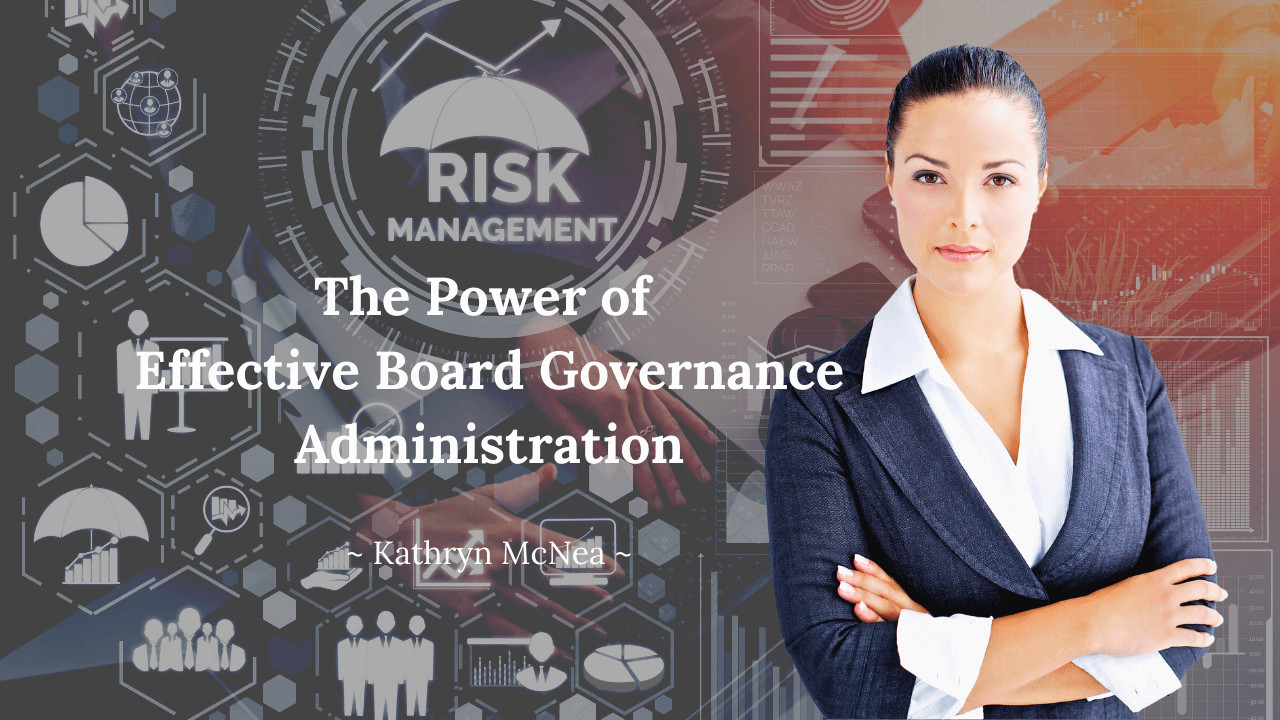
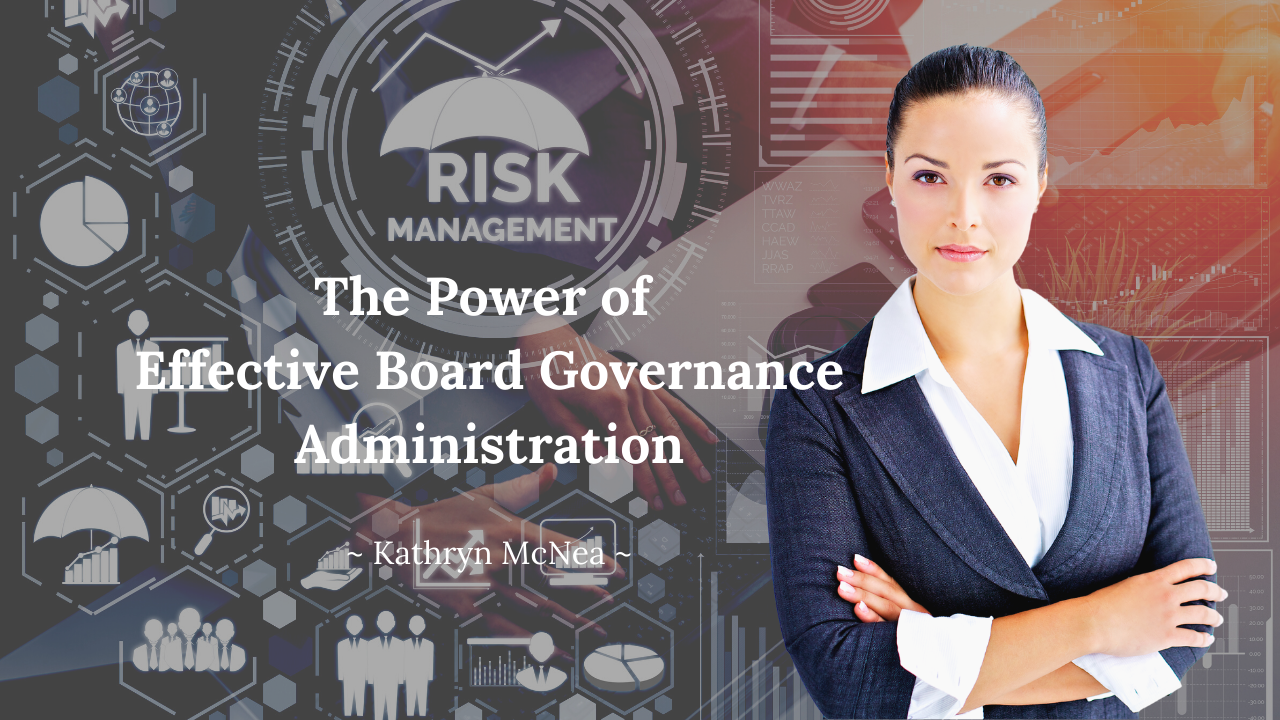 Risk management is a crucial aspect of board governance and has become one of the highest education and development growth areas for directors in recent years. The increase in the need for organizational crisis management strategies is a direct result of the severe consequences caused by poor corporate risk management oversight leading up to the 2008 financial crisis. This prompted governments and regulators around the world to enact stringent regulations to prevent similar collapses in the future.
Risk management is a crucial aspect of board governance and has become one of the highest education and development growth areas for directors in recent years. The increase in the need for organizational crisis management strategies is a direct result of the severe consequences caused by poor corporate risk management oversight leading up to the 2008 financial crisis. This prompted governments and regulators around the world to enact stringent regulations to prevent similar collapses in the future.Fast-forward to the second decade of the millennium. Have things improved because of more rules? We find ourselves staring at soaring interest rates on credit card statements with no end in sight and expensive home improvement loans and mortgages. Unprecedented inflation has been stirring up recession fears and threatening our economy for almost two years. Time and time again, the press reports sensitive and scandalous details of the demise of seemingly successful billion-dollar enterprises that had been earmarked as great business models. Whistleblowing on social media and instant messaging has become the norm. And the dramatic impact of the COVID-19 “black swan” event created devastating financial instability in many large corporations and small businesses. Now, boards in all industries face intense scrutiny over ERM practices. How a company responds to a crisis can make or break it, and impact the board, shareholders and staff.
When risk and compliance management roles and responsibilities are properly assigned, challenges can be minimized. For example, board services management ensures that effective oversight and governance administration best practices are used at the highest level of the organization. It supports appropriate reporting standards, tracks actions to be taken by management, and deals with government and regulatory filings that facilitate compliance with relevant laws and regulations. These accountabilities and more help the board make informed choices and fulfill its obligations more effectively.
I’ve worked with boards of many leading Canadian corporations, so I am aware of what they typically look for in a business partner when it comes to governance administration. Strategic thinking, adaptability, good leadership, problem-solving skills, financial savvy, organizational skills, and a strong dedication to the company's vision and values. Just as important is a complete understanding of how risk management contributes to good governance.
If your expertise lies in board services governance admin management or you are a senior strategic assistant working with the board, here are a few suggestions on where to aim your attention in support of risk management.
It all starts with developing trustful and transparent relationships with your executive team. When it comes to risk management, align yourself with the CRO and CCO. Reach out to support ERM reporting and process implementation. Here are a few things to consider lending a hand with:
- Offer to gather and organize data, conduct research. If possible, collaborate with the internal control staff or actuaries. They are the experts and will have valuable information to share.
- Be willing to handle compliance-related deliverables. This will require a thorough understanding of industry standards and laws to effectively report on complex regulatory requirements and meet deadlines. There are many online industry resources provided by provincial, federal, or state legislative bodies.
- Act as a dependable liaison between the board and regulatory bodies on risk and compliance matters. This will help avoid fines, penalties, and other legal action. It can also help the organization stay in compliance and adapt the risk management strategy accordingly. On the other side of the coin, it helps regulatory bodies understand the organizational risk management approach, and any specific challenges it faces.
- Guide the process of writing, revising, updating, and properly implementing organizational risk management policies and procedures. What can you do to ensure that they are being followed to manage risks effectively?
- Offer to assist with the development and implementation of a risk management framework. This can be a great hands-on developmental resource for learning about your organization's industry, products, or services. Attend the team meetings, listen, and be a proactive participant. Risk and compliance strategies need to be somewhat fluid to respond to constant changes in the business environment. Offer to support monitoring and incorporation of legal and regulatory updates into the ERM framework.
- Help develop a risk-aware culture so that everyone knows what steps to take when they are identified. Find online resources or hire external facilitators that specialize in risk and compliance education and offer staff training.
- Assist with the development and implementation of crisis management plans. Make sure the board, staff and stakeholders are aware of what actions are in place to prepare them for potential unexpected events. It’s like having a first aid kit, ready to help if there’s an emergency. It tells everyone what to do and how to do it. It can help minimize the damage caused by a crisis, minimize disruptions to operations and protect the organization’s reputation.
- Facilitate communication and collaboration between the board and management on risk and compliance activities including writing board or committee reports and briefing notes.
By providing the right kind of governance administration support and guidance to the board and management team you become instrumental in helping them make informed, critical decisions related to risk and compliance management.
It is also imperative that you maintain an understanding of the level and amount of information flowing to the board. Is it too much? Is it not enough? Because it’s when the board is left in the dark that problems surface. For example, some of the most recent and notorious criticisms of poor governance practices tend to stem from the non-disclosure of financial transactions that have lined the pockets of founders and employees. Management’s duty to keep the board informed about financial dealings with insiders is a fundamental risk management process that protects the organization.
We all know that a well-informed board is an engaged board, and more likely to support management decisions, but there is a reporting sweet spot depending on the economic sector, governance model and corporate life cycle. In any case, be mindful of the distinction between board oversight and operational management duties. When board members receive the right reports and materials, they should feel that the information and insights add value without having to ask too many questions. That’s not to say that a director, especially one who is more risk-averse than the others, won’t challenge the reporting. That is, after all, a key function of the board.
Enterprise Risk Management and compliance are intricate processes with multiple variables, depending on the industry. In your role of providing board services management and governance administration the challenge can feel like a heavy lift at times, especially if you are the one relied upon to support processes and deadlines during crunch time. It can all feel a little overwhelming.
Just remember to remain patient and objective, listen intently, ask questions, and communicate effectively.
You’ve got this Boardroom Boss!
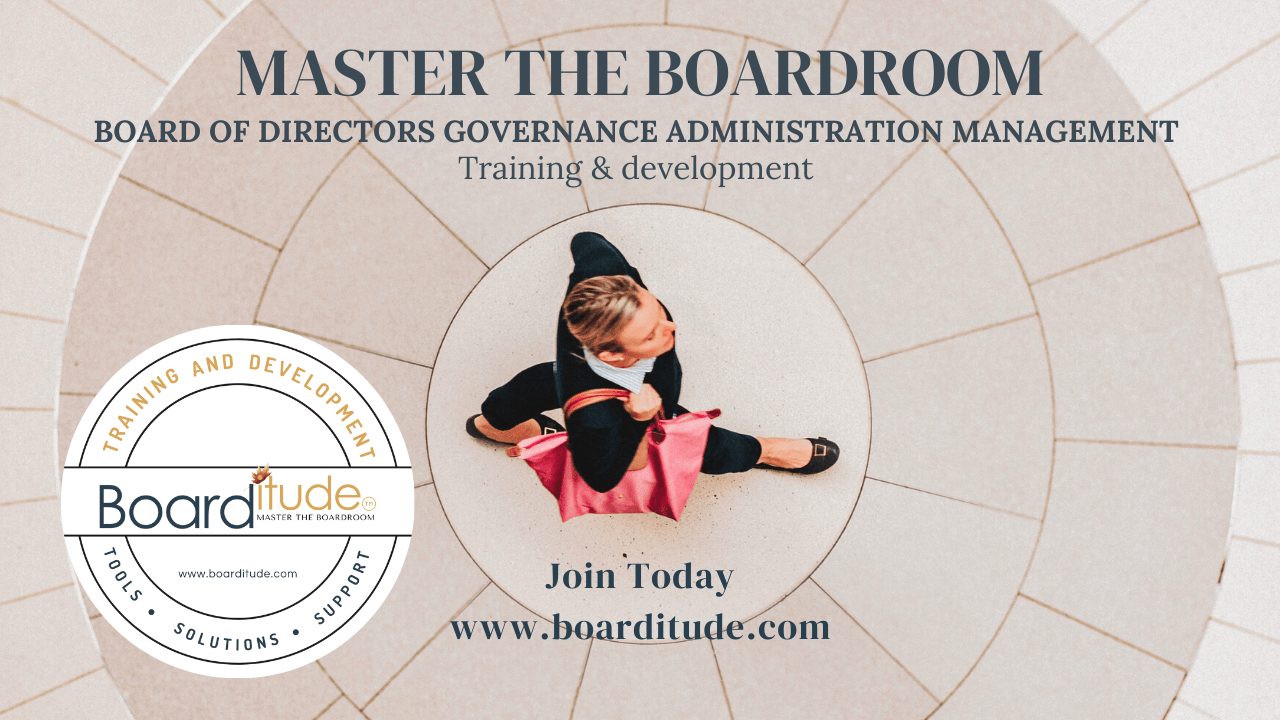
We take a much deeper dive into enterprise risk management and compliance through tutorials and resources that are available inside BIA.
Ambitious, determined, and strategic, with a strong sense of corporate social responsibility in a role that supports the board of directors, you want to contribute to the success of the organization and its leaders.
That means being well-equipped and ready to drive the actions coming out of the C-suite, always aware of the valuable assets you bring to the table as a respected accountability partner in the boardroom. You need to be in sync with director roles and responsibilities, governance best practices, industry trends, regulatory obligations, and always have access to key information with the right answers.
Top corporate governance professionals who understand how ideas brought to the board of directors are strategized, triaged, and executed are highly sought after in all industries, worldwide.
Welcome to BoarditudeTM. Expert solutions for effective board governance administration management.


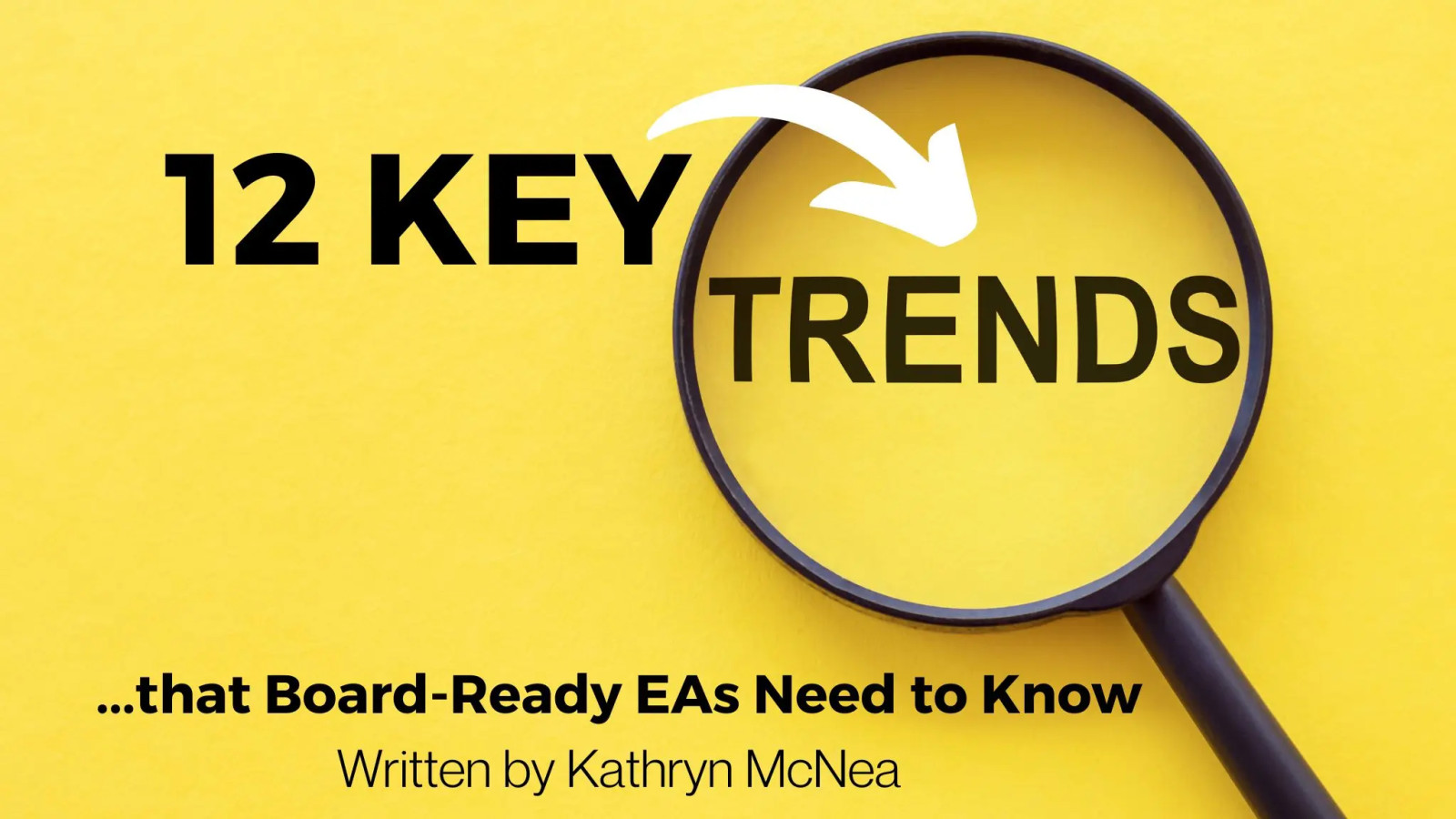

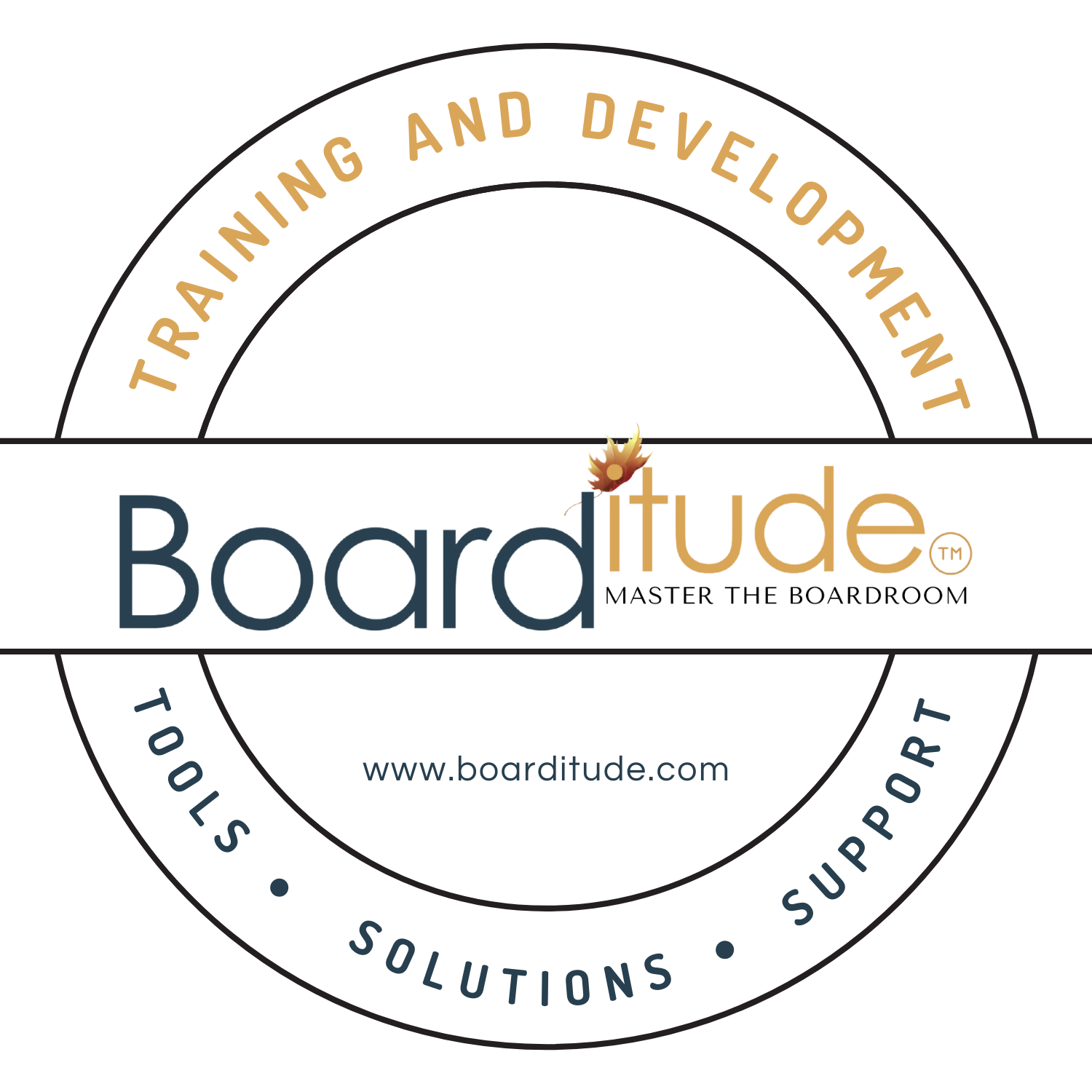







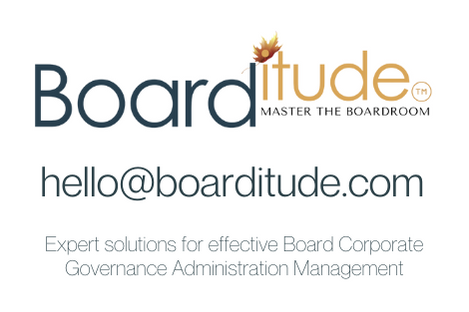
0 Comments